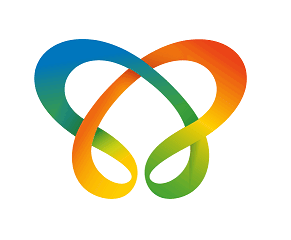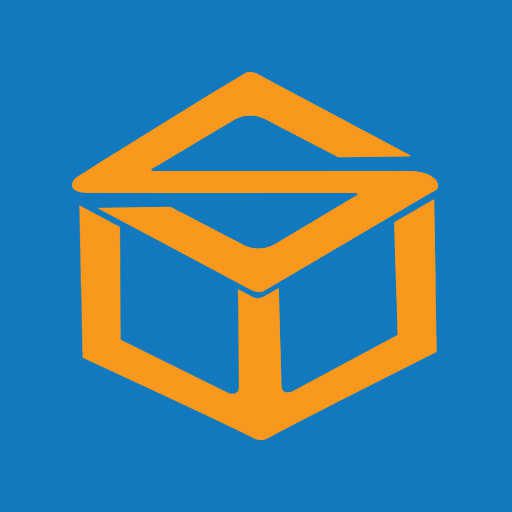Description

Centra

Inoday eCommerce Solution
Comprehensive Overview: Centra vs Inoday eCommerce Solution
Overview of Centra and Inoday eCommerce Solutions
a) Primary Functions and Target Markets
Centra:
-
Primary Functions:
- Centra is a Direct-to-Consumer (DTC) and wholesale eCommerce platform designed to streamline operations for brands wanting to expand their digital presence. It offers tools for order management, inventory control, customer experience enhancement, and seamless integration with global marketplaces.
- Key features include multi-store management, customizable storefronts, inventory and order management, and real-time analytics.
-
Target Markets:
- Centra primarily targets fashion and lifestyle brands looking to reach international markets.
- It focuses on mid to large-sized companies that need robust scalability as they expand their eCommerce operations.
- The platform is well-suited for brands that want to maintain a strong brand identity while offering a seamless online shopping experience.
Inoday eCommerce Solution:
-
Primary Functions:
- Inoday provides comprehensive eCommerce solutions with a focus on integrating with ERP systems like NetSuite. It aims to offer seamless front-end and back-end operations, merging eCommerce with supply chain management.
- Features typically include customizable storefronts, ERP integration, real-time inventory management, and business intelligence tools.
-
Target Markets:
- Inoday targets a broad range of industries but is particularly focused on businesses already using or intending to implement NetSuite ERP solutions.
- The platform is suitable for small to medium-sized businesses that require tight integration between their eCommerce solutions and other business operations, such as finance and distribution.
b) Market Share and User Base
-
Market Share:
- Centra has a stronger presence in the fashion and lifestyle sector, especially in Europe, where it has carved out a niche by catering directly to DTC brands. Its growth is more pronounced among brands that have a clear international strategy.
- Inoday's presence is more widespread across industries due to its partnership with Oracle NetSuite. Its market share depends significantly on businesses that are invested in ERP-driven eCommerce platforms, often appealing to those already entrenched in the NetSuite ecosystem.
-
User Base:
- Centra’s user base primarily consists of fashion and lifestyle retailers with existing or growing international ambitions. This includes brands seeking to benefit from its robust multi-market capabilities.
- Inoday serves a diverse clientele that values ERP integration, including manufacturing, wholesale distribution, and retail segments. Its users are typically businesses looking for a unified system to manage their operations comprehensively.
c) Key Differentiating Factors
-
Integration and Scalability:
- Centra offers a scalable solution with a strong emphasis on the fashion and lifestyle sectors, allowing businesses to grow their international presence without losing brand essence. Its strength lies in managing multiple storefronts and internationalization.
- Inoday, on the other hand, is deeply integrated with NetSuite, providing an unparalleled integration for businesses already using or planning to use NetSuite ERP, thus allowing synchronization of accounting, inventory, and sales.
-
Industry Focus:
- Centra's niche focus on fashion and lifestyle brands sets it apart, providing tailored solutions that cater to the specific needs of this industry.
- Inoday’s capability to serve diverse sectors due to its robust ERP integration is a key differentiator, making it suitable for companies in manufacturing, distribution, and more, seeking integrated eCommerce solutions.
-
Customization and Flexibility:
- Centra provides flexibility for brands to maintain distinct storefronts under a single umbrella, allowing for a customized look and feel across various regions and languages.
- Inoday emphasizes the business process integration and backend operational efficiency, offering flexibility in terms of ERP-centered customizations.
In summary, Centra and Inoday serve different niches within the eCommerce landscape, with Centra focusing on providing robust, scalable solutions for the fashion industry and Inoday prioritizing ERP integration for a diverse set of industries. The choice between them would depend greatly on a company's industry focus, existing systems, and scalability needs.
Contact Info

Year founded :
2016
+46 8 720 33 33
Not Available
Sweden
http://www.linkedin.com/company/centra-commerce

Year founded :
Not Available
Not Available
Not Available
Not Available
Not Available
Feature Similarity Breakdown: Centra, Inoday eCommerce Solution
To provide a feature similarity breakdown for Centra and Inoday eCommerce Solution, I’ll outline a comparison based on common features of general eCommerce solutions, as I don't have specific internal data about these particular products. However, based on general industry knowledge, we can outline a typical comparison:
a) Common Core Features:
-
Product Management:
- Both solutions likely offer robust product management features, including catalog management, inventory tracking, and product categorization.
-
Order Management:
- They probably include order processing functionalities, enabling order tracking, status updates, and fulfillment management.
-
Customer Management:
- Expect customer account management, reporting tools, and possibly CRM integration.
-
Payment Processing:
- They should support multiple payment gateways, allowing for flexible payment options.
-
Shipping and Tax Calculation:
- Automated tax calculations and shipping logistics integration are often standard.
-
Analytics and Reporting:
- Both platforms may offer reporting tools to allow businesses to track sales, customer behavior, and other key performance indicators.
b) User Interfaces:
-
Centra:
- Known for a clean, intuitive UI focusing on simplicity and user-centered design. May offer a dashboard for at-a-glance insights into store performance and customer interactions.
-
Inoday eCommerce Solution:
- Generally provides a functional interface that may integrate with other applications. Likely less visually focused than Centra but could be more customizable based on business needs.
c) Unique Features:
-
Centra:
- Focus on Direct-to-Consumer (DTC): Often geared towards brands looking to sell directly to consumers, with tools to enhance brand storytelling and customer engagement.
- Omnichannel Capabilities: Solutions for managing offline and online sales channels cohesively.
-
Inoday eCommerce Solution:
- Custom Development Services: Inoday often provides custom solutions tailored to specific business requirements, potentially offering more personalized service.
- Integration with ERP Systems: Strong integration capabilities with enterprise resource planning systems, beneficial for businesses with complex logistics.
When comparing eCommerce platforms like Centra and Inoday, it's important for businesses to prioritize their specific needs—such as ease of use, scalability, customization, integration capabilities, and target market approach—to determine the best fit for their requirements.
Features

Not Available

Not Available
Best Fit Use Cases: Centra, Inoday eCommerce Solution
Centra and Inoday eCommerce Solution are two distinct platforms that cater to different types of businesses and projects, each with their own set of strengths and ideal use cases.
Centra
a) Best Fit for Businesses or Projects:
-
Fashion and Apparel Brands: Centra has established a strong reputation in the fashion industry due to its comprehensive suite of tools designed for direct-to-consumer (D2C) operations. It supports global scaling, multi-storefront capabilities, and provides a seamless user experience that fits fashion brands perfectly.
-
Luxury and Lifestyle Brands: The platform's focus on high-quality presentation and sophisticated user experiences makes it an ideal choice for luxury brands looking to maintain their brand image while expanding online.
-
Businesses Seeking Cross-Border Expansion: Centra excels in international commerce, offering features like multi-currency support, local tax compliance, and a multilingual interface, making it perfect for brands aiming to expand globally.
-
Brands Requiring Seamless Omnichannel Experience: With its ability to integrate with physical stores and other sales channels, Centra is suitable for businesses looking to offer a consistent and integrated shopping experience across online and offline touchpoints.
Inoday eCommerce Solution
b) Best Fit for Businesses or Projects:
-
Small to Mid-Sized Enterprises (SMEs): Inoday offers a cost-effective eCommerce solution that scales with growth, making it a preferred option for SMEs needing robust eCommerce capabilities without the complexity and cost of larger platforms.
-
Businesses Already Using NetSuite: As an official Oracle NetSuite partner, Inoday excels in providing eCommerce solutions that seamlessly integrate with existing NetSuite environments, benefiting businesses already leveraging this ERP platform.
-
Companies Needing Custom Development and Integration: Inoday is known for its strong capabilities in customizing and integrating eCommerce solutions, making it ideal for companies with unique requirements or those needing to integrate eCommerce with complex business systems.
-
B2B E-Commerce Ventures: Inoday’s solutions often cater well to B2B businesses due to the platform’s ability to handle complex pricing, contracts, and ordering processes typical in B2B transactions.
Catering to Different Industry Verticals or Company Sizes
Centra:
- Industry Focus: Primarily targets fashion, apparel, luxury, lifestyle, and beauty brands.
- Company Size: Although suitable for businesses of various sizes, it particularly shines with mid to large-sized enterprises that have an international presence or ambition.
Inoday eCommerce Solution:
- Industry Flexibility: Offers greater customization across industries, including retail, manufacturing, wholesale distribution, and more, due to its close integration with NetSuite ERP.
- Company Size: Tailored for small to mid-sized businesses, but also capable of scaling to accommodate growing enterprises with more complex needs as they expand.
Both Centra and Inoday eCommerce Solution offer valuable features, but the best fit largely depends on the specific needs of the business, its current technological environment, growth ambitions, and industry specifics.
Pricing

Pricing Not Available

Pricing Not Available
Metrics History
Metrics History
Comparing teamSize across companies
Conclusion & Final Verdict: Centra vs Inoday eCommerce Solution
Conclusion and Final Verdict for Centra and Inoday eCommerce Solution:
Choosing the right eCommerce solution for a business depends on several critical factors, such as budget constraints, specific business needs, scalability, integration capabilities, and overall value. Both Centra and Inoday offer distinctive features tailored to different user requirements.
a) Best Overall Value:
Considering all factors, Centra often presents the best overall value for businesses looking for a comprehensive eCommerce platform. Centra is renowned for its robust, customizable features and strong integration capabilities which cater to various business needs. It supports a broad range of eCommerce functionalities, making it suitable for midsize to larger enterprises that require scalability and flexibility.
b) Pros and Cons:
Centra:
Pros:
- Scalability: Centra is highly scalable, making it ideal for growing businesses that anticipate high transaction volumes and expansion into multiple markets.
- Customization: Offers extensive customization options, allowing businesses to tailor the platform to meet specific operational needs.
- Integration: Seamlessly integrates with various third-party systems and software, enhancing its functionality and streamlining business processes.
- User Experience: Provides a user-friendly interface with comprehensive support, enabling users to manage their eCommerce operations efficiently.
Cons:
- Cost: The investment required can be substantial, particularly for smaller businesses with limited budgets.
- Complexity: The extensive features and customization options might result in a steeper learning curve for new users.
Inoday eCommerce Solution:
Pros:
- Affordability: Generally less expensive than more comprehensive platforms, making it an attractive option for small to mid-sized businesses with budget constraints.
- Ease of Use: Known for its straightforward setup process and easy-to-use interface which is great for beginners and smaller teams.
- Integrated Services: Often comes integrated with other business solutions provided by Inoday, offering a more streamlined solution for current users.
Cons:
- Limited Features: May lack advanced features and scalability needed by larger enterprises or businesses looking to expand significantly.
- Integration Limitations: Might have fewer third-party integration options, potentially limiting the flexibility in adding new functionalities.
c) Specific Recommendations for Users Deciding Between Centra and Inoday:
-
Assess Business Needs: Businesses should carefully assess their current and future needs. If you're a smaller operation looking for cost-effective, straightforward solutions, Inoday may be a suitable choice. For those anticipating growth and requiring more advanced functionalities, Centra could provide better long-term value.
-
Consider Budget: Evaluate your budget and how much you're willing to invest in an eCommerce solution. If budget constraints are a significant concern, Inoday might be a more practical choice initially, with the possibility of upgrading later.
-
Plan for Integration: If your business relies heavily on existing software, check the compatibility and ease of integration each platform offers with your current systems.
-
Explore Trial Options: If possible, take advantage of any demo or trial options provided by the platforms. This hands-on experience may provide valuable insights into which solution aligns better with your business operations and user experience preferences.
Ultimately, the choice between Centra and Inoday should align with your strategic goals, resource allocation, and anticipated growth trajectory. Each platform has its unique benefits, and the decision should be made based on a comprehensive evaluation of these factors.
Add to compare
Add similar companies



